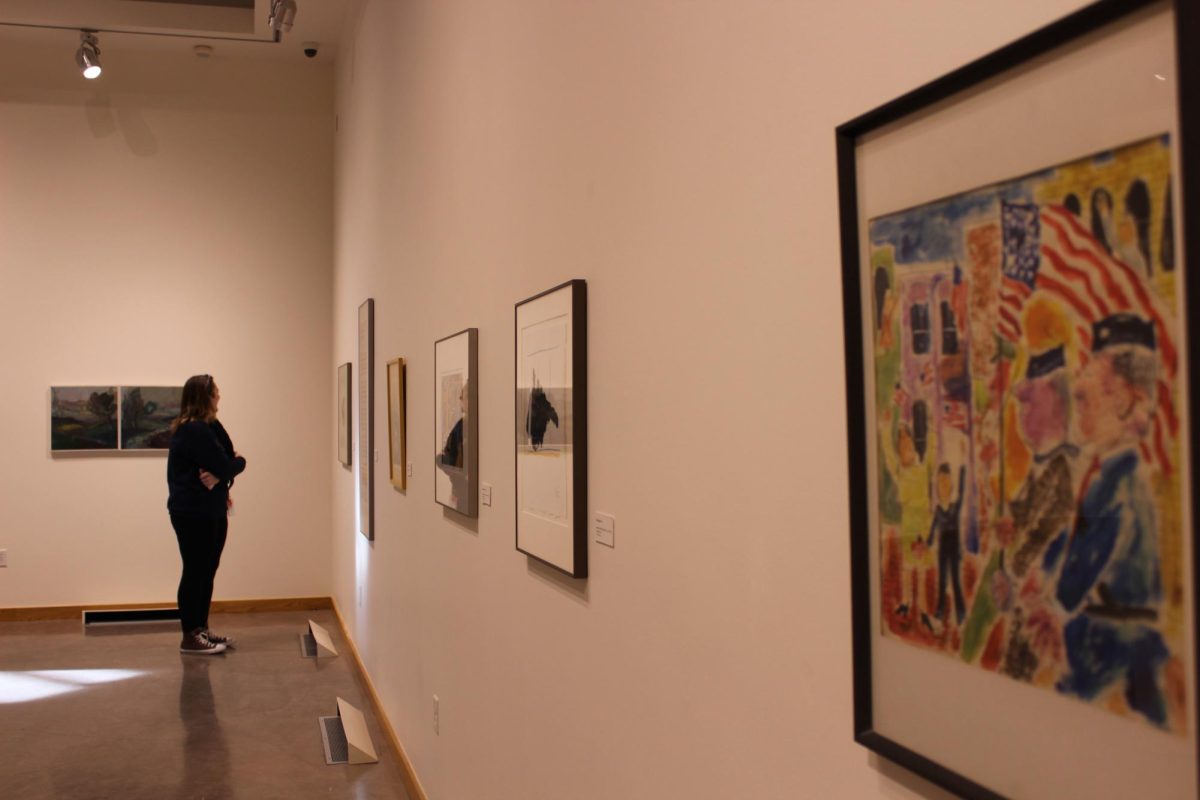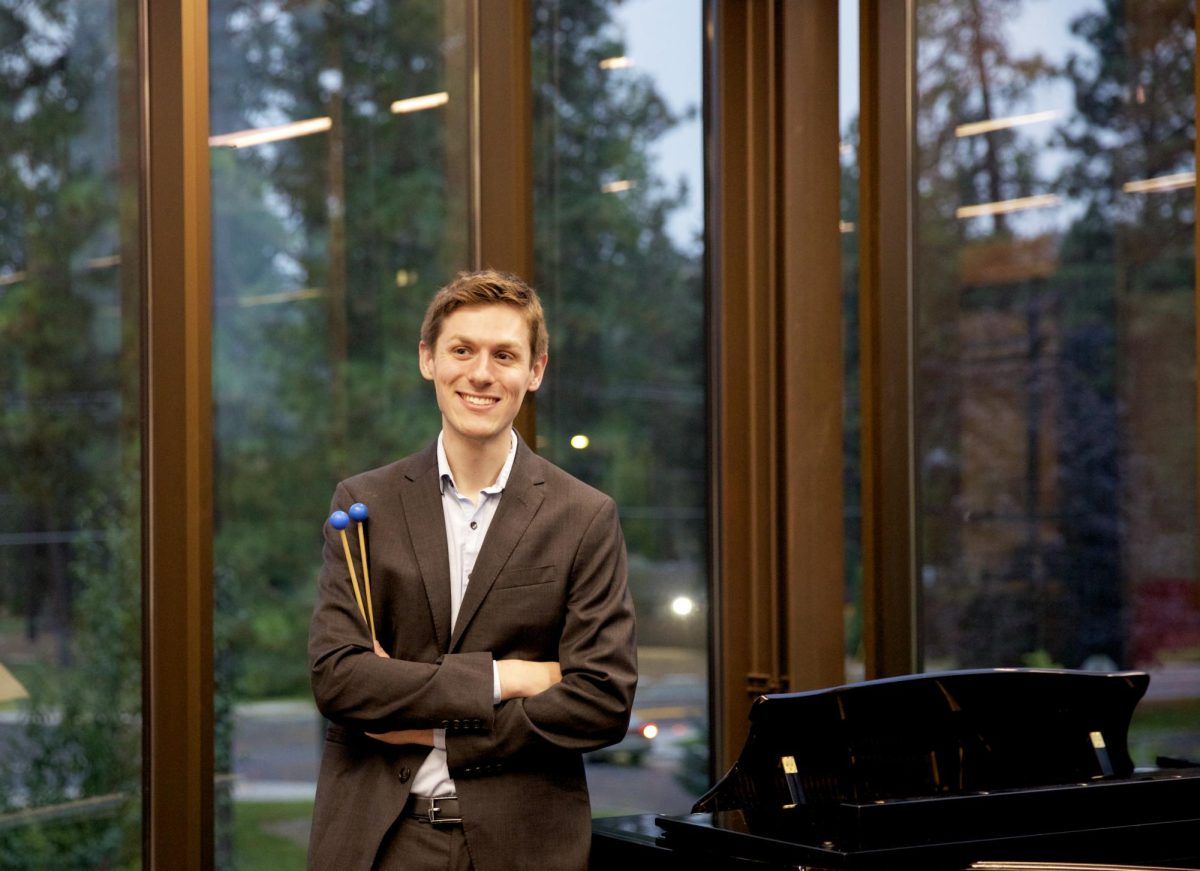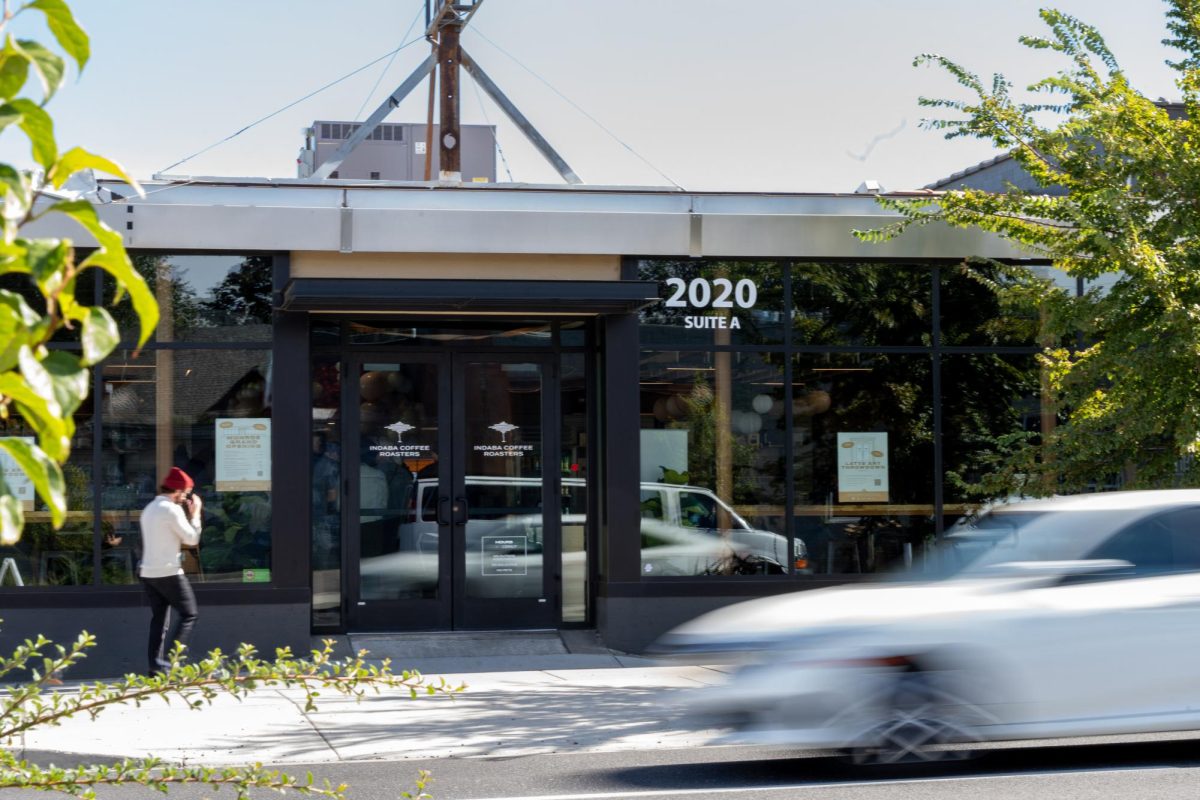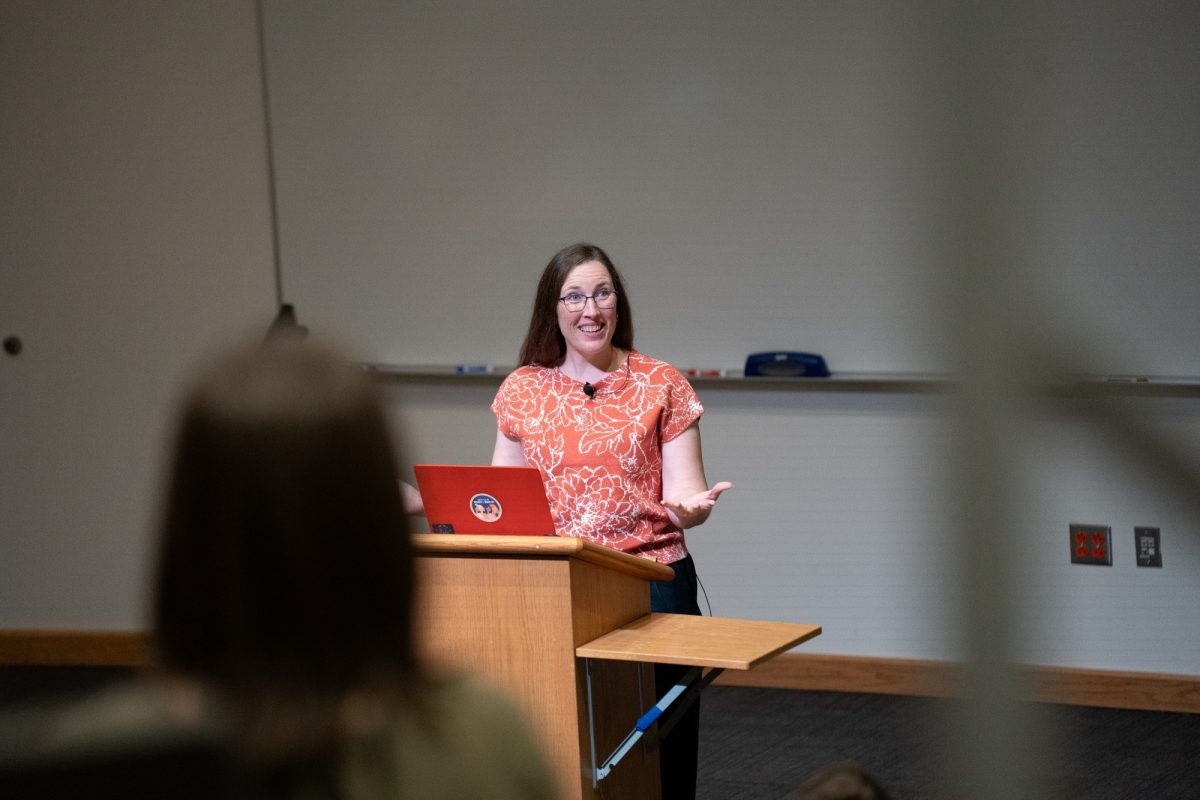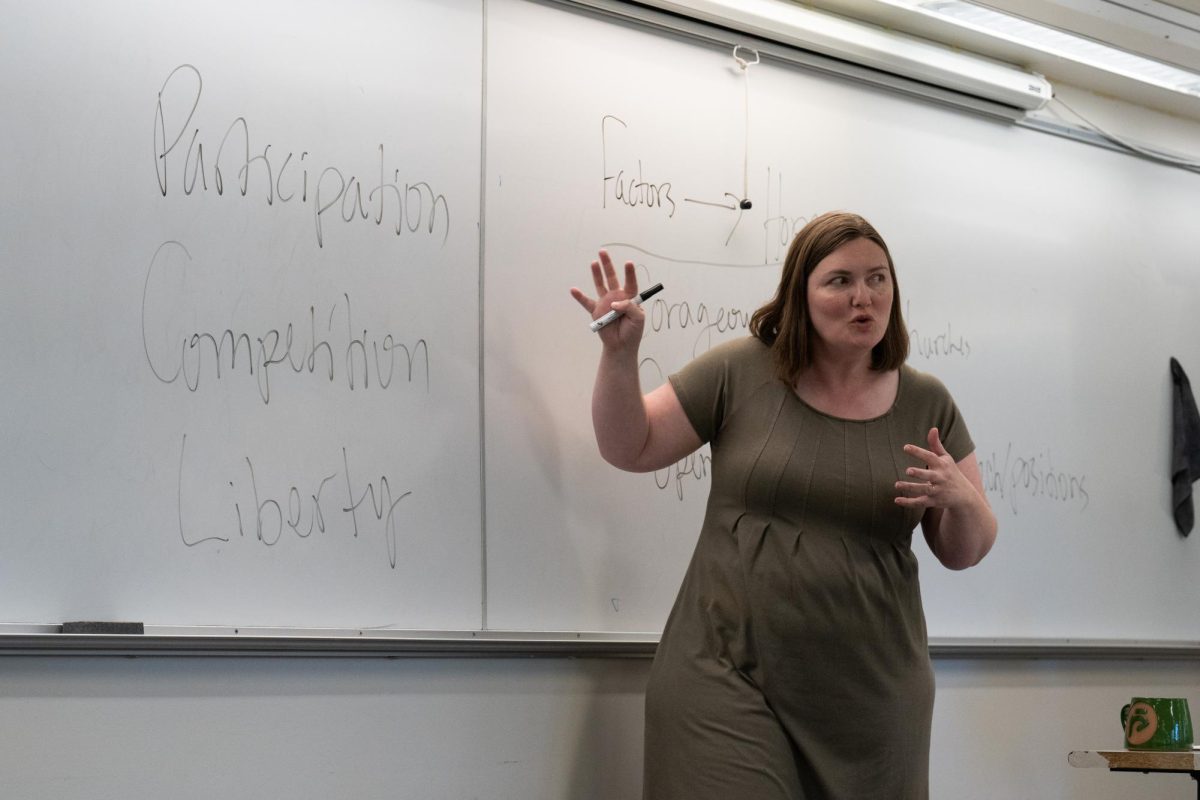In celebration of William Shakespeare’s 450th birthday, the Whitworth Symphony Orchestra led by conductor Philip Baldwin, focused their Nov. 1 concert on the music that traditionally accompanied the bard’s plays.
Before the concert, Dr. Dean R. Baldwin gave a speech explaining the relationship between Shakespeare and music, a topic on which he has published several books.
Shakespeare’s plays are full of music. From incidental music from trumpet fanfare accompanying royalty, to full songs sang by individual characters, music helps to advance the story, Baldwin said.
The orchestra played a variety of music and overtures from the plays “Richard III,” “Hamlet,” “A Midsummer Night’s Dream” and “The Merry Wives of Windsor,” among others. Depending on how well one knows Shakespeare, it is possible to hear distinctive aspects of the play, such as the bray of a donkey in “A Midsummer Night’s Dream,” or the patterns of love and loss in “The Merry Wives of Windsor.”
Many students were impressed by the orchestra’s performance and its connection to Shakespeare.
“There were many great pieces that really resonated, and they were stuck in my head for the rest of the day,” sophomore Clarisa Watkins said.
Watkins, who makes attending orchestra concerts a priority, “loved the fact that they identified certain things in the music,” such as the bray of the donkey which Baldwin described.
Concertmaster Haley Kovach, a junior violinist, especially enjoyed Walton’s “Richard III” because of the dramatic musical shift from the entire orchestra to a smaller quartet composed entirely of strings.
A music performance major, Kovach played in orchestras throughout junior high and high school beginning at the age of eight, and realized it was something she wanted to do all of her life.
“I want to teach violin lessons and always keep performing in some aspect,” Kovach said. For performance, she will be a part of either a community or professional orchestra, Kovach said.
As concertmaster, Kovach has responsibilities such as tuning the orchestra, overseeing the violins and leading the music with her body so orchestra members who cannot see the conductor can follow along more easily, Kovach said.
Orchestra provides many leadership positions “in a safe environment,” Kovach said, as well as providing a social aspect for musicians. Instead of only taking individual lessons and spending hours alone in practice rooms, orchestra brings people together to learn how to work together and pay attention to others around you, Kovach said.
Outside of performing concerts at Whitworth, the orchestra sometimes has additional opportunities to perform.
“We took a tour freshman year to Idaho and Utah,” Kovach said. “It was a lot of being on a bus, but it was fun getting to know [the other musicians] and perform with them as more of a unit,” Kovach said.
Preparation for a concert is endless practicing and rehearsing. Each musician practices their part individually, Kovach said. Then in group rehearsals, all of the individual pieces are integrated together until the orchestra masters the piece, which Kovach describes as feeling “glorious.”
And the result of Symphonic Shakespeare was glorious, Watkins said.
“They always make it exceptional,” Watkins said. “I’m so glad I went. I would recommend going to anybody.”

